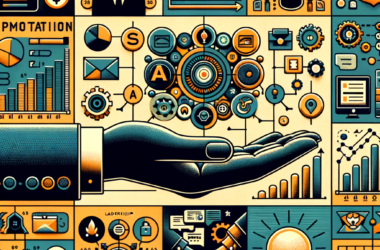Are you looking for an in-depth software development career path? It comprises many stages, such as junior software developer to Chief Technology Officer (CTO).
Hence, It opens doors to a dynamic and ever-evolving field with boundless opportunities for growth and innovation. However, from crafting intuitive user interfaces to architecting robust backend systems, software developers play a pivotal role in shaping the digital landscape of today and tomorrow.
In this comprehensive guide, we’ll explore the diverse pathways, essential skills, and critical milestones that define the software development career journey.
Best Software Development Career Path
Junior Software Developer (Entry-Level)
Responsibilities:
- Writing code: Typically, junior developers start by working on smaller tasks or modules within a project.
- Debugging: Identifying and fixing issues in code, often with the guidance of more experienced developers.
- Testing: Writing and executing tests to ensure code quality and functionality.
- Assisting senior team members: Junior developers often collaborate with more experienced colleagues, learning from them and contributing to larger projects under their guidance.
Skill Development:
- Learning programming languages: Junior developers may focus on mastering languages like Python, Java, JavaScript, or others, depending on the company’s tech stack.
- Development tools: Becoming proficient with integrated development environments (IDEs), version control systems (e.g., Git), and issue tracking systems.
- Best practices: Understanding software development methodologies (e.g., Agile, Scrum) and coding standards to write clean, maintainable code.
Mid-Level Software Developer
Responsibilities:
- Taking ownership of projects: Mid-level developers may lead smaller projects or components of larger projects, from design to implementation.
- Collaboration: Working more independently while collaborating closely with other team members, including junior developers.
- Mentorship: Providing guidance and mentorship to junior developers, sharing knowledge and best practices.
- Technical contributions: Making significant contributions to the codebase, including implementing new features, refactoring code, and resolving complex issues.
Skill Development:
- Deepening technical skills: Continuously improving proficiency in programming languages, frameworks, and technologies relevant to the role and projects.
- Architectural understanding: Gaining a deeper understanding of software architecture principles and design patterns.
- Communication skills: Developing more vital communication skills to convey technical concepts and collaborate with team members effectively.
Senior Software Developer
Responsibilities:
- Leading projects: Leading larger or multiple projects simultaneously, making technical decisions, and guiding the team towards successful outcomes.
- Technical leadership: Providing technical guidance and expertise to the team, influencing architectural decisions, and driving technical excellence.
- Code reviews: Conducting thorough code reviews to ensure code quality, consistency, and adherence to best practices.
- Mentorship and coaching: Mentoring junior and mid-level developers, fostering their growth and development within the team.
Skill Development:
- Leadership skills: Developing leadership qualities such as decision-making, conflict resolution, and strategic thinking.
- Architectural design: Mastering software design principles, scalability considerations, and system architecture patterns.
- Problem-solving: Enhancing problem-solving skills to tackle complex technical challenges and guide the team toward practical solutions.
Lead Developer Or Architect
Responsibilities:
- Architectural design: Leading the design and implementation of complex software systems, ensuring scalability, reliability, and maintainability.
- Technical strategy: Setting the technical direction and vision for projects or products, aligning technical initiatives with business goals.
- Team management: Providing leadership and direction to the development team, overseeing project execution and resource allocation.
- Collaboration: Collaborating with product managers, stakeholders, and other teams to define requirements and prioritize development efforts.
Skill Development:
- Strategic thinking: Developing strategic planning skills to align technical decisions with long-term business objectives.
- Team leadership: Enhancing leadership and management skills to lead and inspire cross-functional teams effectively.
- Communication and negotiation: Mastering communication and negotiation skills to articulate technical concepts, gain buy-in from stakeholders, and resolve conflicts effectively.
Engineering Manager Or Technical Lead
Responsibilities:
- Team leadership: Managing and developing a team of developers and potentially other technical staff, including hiring training and performance management.
- Project management: Overseeing project planning, execution, and delivery, ensuring that projects are completed on time and within budget.
- Stakeholder management: Collaborating with stakeholders to define project requirements, manage expectations, and ensure alignment with business objectives.
- Process improvement: Identifying opportunities to improve development processes, tools, and methodologies to increase efficiency and productivity.
Skill Development:
- People management: Developing strong leadership and interpersonal skills to motivate and engage team members, foster a positive work culture, and resolve conflicts.
- Project management: Enhancing project management skills, including planning, scheduling, risk management, and budgeting.
- Business acumen: Gaining a deeper understanding of the business domain and market dynamics to make informed technical decisions that drive business value.
Chief Technology Officer (CTO) Or Technical Executive
Responsibilities:
- Technical strategy: Setting the organization’s overall technical vision and plan, aligning it with business objectives and market trends.
- Innovation and R&D: Driving innovation initiatives, exploring new technologies and trends, and identifying opportunities for product or process improvements.
- Leadership: Providing executive leadership and guidance to the technical team, fostering a culture of innovation, collaboration, and continuous improvement.
- Stakeholder engagement: Collaborating with senior management, investors, and other stakeholders to communicate technical strategy, gain support, and ensure alignment with organizational goals.
Skill Development:
- Executive leadership: Developing solid executive leadership skills, including vision setting, strategic planning, and decision-making at the organizational level.
- Business strategy: Enhancing business insight and understanding of market dynamics to drive strategic initiatives contributing to the organization’s growth and success.
- Relationship building: Cultivating relationships with key internal and external stakeholders to garner support for technical initiatives and foster collaboration across the organization.
Popular Software Engineering Careers

Software engineering is a broad field with many different career paths and specializations.
Here are some popular software engineering careers:
- Full-Stack Developer: Full-stack developers are proficient in both front-end and backend development. They work on all aspects of web application development, from designing user interfaces to implementing server-side logic and databases.
- Front-End Developer: Front-end developers focus on the user interface and user experience of web applications. Thus, they use HTML, CSS, and JavaScript to create interactive and visually appealing interfaces that users interact with directly.
- Backend Developer: Backend developers work on the server side of web applications, managing data, business logic, and server-side operations. They use languages like Python, Java, Ruby, or Node.js, along with databases like MySQL or MongoDB.
- Mobile App Developer: Developments specialize in creating applications for mobile devices such as smartphones and tablets. Thus, they may develop native apps using languages like Swift for iOS, Kotlin for Android, or cross-platform frameworks like React Native or Flutter.
- DevOps Engineer: DevOps engineers focus on streamlining the software development lifecycle through automation, collaboration, and continuous integration/continuous deployment (CI/CD) practices. Also, they work on infrastructure automation, configuration management, and deployment pipelines.
- Machine Learning Engineer: Machine learning engineers develop algorithms and models that enable computers to learn from data and make predictions or decisions. They use techniques such as supervised learning, unsupervised learning, and deep learning to solve complex problems.
- Data Engineer: Data engineers design, build, and maintain systems for collecting, storing, and processing large volumes of data. They work with databases, data warehouses, and big data technologies to ensure data quality, reliability, and accessibility.
- Game Developer: Game developers design and develop video games for various platforms, including consoles, PCs, and mobile devices. They work on game mechanics, graphics, audio, and multiplayer networking.
- Security Engineer: Security engineers ensure the security and integrity of software systems and applications. Also, they identify vulnerabilities, implement security measures, and conduct security audits and penetration testing.
Essential Skills For A Software Engineer
Software engineering is a dynamic field that requires a diverse set of skills to excel.
Here are some essential skills for software engineers:
- Programming Languages: Proficiency in at least one programming language is necessary. Common languages include Java, Python, JavaScript, C++, and C#. The choice of language may vary based on the specific domain or project requirements.
- Software Development Methodologies: Familiarity with software development methodologies such as Agile, Scrum, or Kanban is essential for collaborating effectively within teams and delivering high-quality software iteratively.
- Database Management: Understanding database systems and SQL (Structured Query Language) is necessary for storing, retrieving, and managing data efficiently. Knowledge of database design principles and normalization is also beneficial.
- Web Development Skills: For web developers, proficiency in HTML, CSS, and JavaScript is essential for building interactive and responsive web applications. Familiarity with web frameworks like React, Angular, or Vue.js can also be advantageous.
- Communication and Collaboration: Effective communication skills are essential for collaborating with team members, stakeholders, and clients. Software engineers should be able to articulate technical concepts clearly and work well in a team environment.
FAQs
Is Software Development A Good Career Path?
Software development is a good career path and an excellent career choice for those interested in technology and innovation. With the increasing reliance on software in nearly every aspect of modern life, the demand for skilled software developers continues to grow.
Which Career Is Best For Software Development?
The best career path within software development depends on individual preferences, skills, and aspirations. Some popular options include full-stack development, front-end development, backend development, mobile app development, and more.
What Is The Pathway To Be A Software Developer?
Becoming a software developer typically involves a combination of education, practical experience, and continuous learning. While some individuals pursue formal education through degrees in computer science or related fields, others may opt for coding boot camps, online courses, or self-directed learning.
Final Thoughts
In conclusion, a software development career pathway is rewarding for those passionate about technology and problem-solving.
Whether you’re just starting or looking to advance your career, the software development field provides many opportunities for learning, growth, and making a meaningful impact.
You can chart a fulfilling and successful career in this dynamic industry by staying curious, continuously learning, and embracing new challenges.






